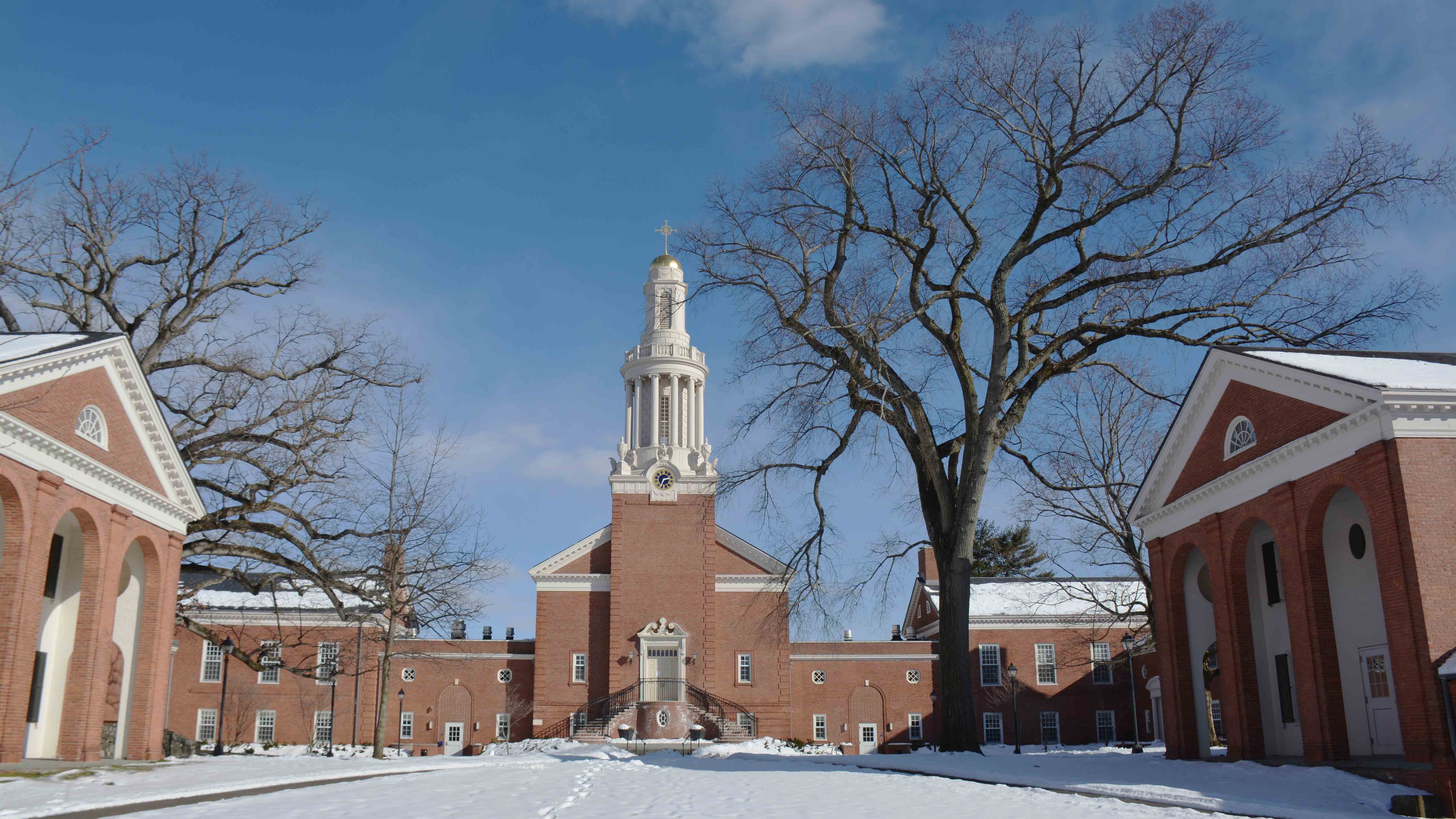
In the weeks since President Donald Trump announced an executive order barring immigration from seven majority Muslim countries, faculty members at the Yale Divinity School have used their theological backgrounds to speak out publicly in support of immigrants.
In a letter addressed to Trump, his cabinet and all members of Congress, Yii-Jan Lin GRD ’14, an assistant professor of New Testament, drew parallels between the New Testament and Ronald Reagan’s famous farewell address in order to argue that open immigration policies increase America’s greatness and power. The letter, which was sent Feb. 19, is part of the nonpartisan campaign American Values Religious Voices, in which 100 scholars from a diverse range of religious backgrounds each send a letter to Trump each day during his first 100 days in office. And after the executive order, professor of Hebrew Bible Joel Baden ’99 wrote an op-ed in the Washington Post on Feb. 10, in which he used passages from the Old Testament and the New Testament to clarify the Bible’s positions on immigration and immigrants.
“Obviously the Bible isn’t central to everyone’s thinking, but it is historically important in the development of Western notions of law and ethics,” Baden told the News. “For those people who do take the Bible as a guide for how to live, and there are an awful lot of them, I was hoping to provide a useful resource in the current political context.”
Lin, whose current research at Yale explores the role of the Book of Revelation in the political rhetoric surrounding American immigration, said she wanted her letter to be “realistic.” Rather than trying to convince Trump’s administration to completely overhaul its specific values or goals during their first weeks of office, she appealed to the administration’s broader message of restoring America’s wealth, fame and power.
Lin added that the invitation she received from American Values Religious Voices was open-ended so, like many of the other authors participating in the project, she chose to write about immigration.
“I think it’s telling that a lot of us decided to write about inclusion, immigration, building a wall,” she said.
Baden said his article grew out of an impromptu lecture he delivered immediately following Trump’s executive order. By discussing the Bible’s treatment of immigrants, refugees and visitors, he hoped to give Divinity School students the tools necessary to “effect positive change” within their communities. It was not until after the lecture that someone suggested he transform his speech into an op-ed.
Baden said the lecture was an emotional response that arose from the fury caused by Trump’s executive order and the frustration that he was neither a lawyer nor a journalist — two professions Baden described as the “most crucial” in aiding U.S. immigrants.
“Because religious belief has come to permeate political discourse nowadays, however, I realized that I could be of some use, even in a relatively restricted way, by laying out what exactly the Bible has to say about this issue,” Baden said.
Divinity School students have also lent support to the pro-immigration cause. Daxton Crocker DIV ’17, a member of the Yale University Student Sanctuary Campus group, was involved in a rally last November that called on University President Peter Salovey to make Yale a sanctuary campus. According to Lin, on the day of the rally, Crocker also led a walkout in which the Divinity School students and faculty members stopped class and marched from the Divinity School to Sterling Memorial Library, the rally’s location.
Crocker said that everyone at the Divinity School has been supportive of protecting and welcoming immigrants. A pastor in a church in Tucson, Arizona, prior to studying at the Divinity School, Crocker added that he has turned to biblical passages concerning the humane treatment of immigrants.
“The most specific theological basis is the Old Testament’s basic instructions that the people of God should treat any foreigner, any alien, any visitor like we treat our citizens, nothing less nothing more, … so that’s where we stand,” Crocker said.
Greg Sterling, dean of the Divinity School, will participate in the American Values Religious Voices project in the coming weeks.







